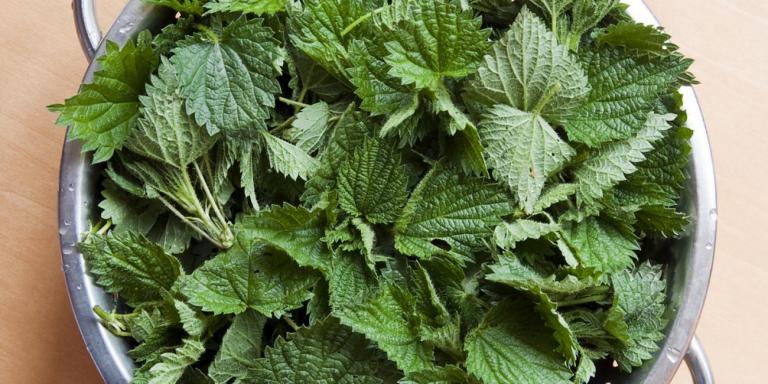Spring Allergies Arriving Early?
Allergies plague many of us. What's worse, is springtime has been arriving up to two weeks earlier than it did two decades ago.
Research from the US Department of Agriculture shows that the ragweed pollen season is lengthening too—by 27 days in the most northern regions of North America.
An Early Defense Beats Allergies
Fortunately, some remedies from Mother Nature can reduce or eliminate your suffering. It's almost always easier to prevent allergy symptom flare-up than to stop full-blown symptoms.
Commencing treatment early appears to be most effective. Some studies suggest starting herbal allergy remedies up to seven weeks before the season begins. Talk to a practitioner trained in herbal medicine about the best course of therapy for you.
Herbal Remedies for Allergies
For the best results, start taking supportive remedies like quercetin and nettles before allergy season hits.
-
Horehound
Horehound (Marrubium vulgare) is best known for wet, productive coughs, but I find it incredibly useful for my allergy clients to quickly clear up mucus and remedy post-nasal drip. It may also help with asthma.
I use a tincture made from fresh aerial parts, 30 to 60 drops one or two times a day, or you can try capsules. Seek a high-quality product in stores; some are more effective than others. Horehound may (rarely) raise blood pressure, and it tastes bitter.
-
Goldenrod
Goldenrod (Solidago canadensis) is another lesser-known allergy remedy that I rely on for my clients. This common weed (often inaccurately blamed for causing allergies) seems to act like a mild antihistamine and helps drain sinus congestion and thin mucus. I usually use it as a tincture, often in combination with horehound, but you can also use a tea. It is also a diuretic, so don’t be surprised if you empty your bladder more often.
-
Quercetin
Quercetin seems to be the most universally effective natural allergy remedy anecdotally, though research is limited. The bioflavanoid is found naturally in apples, tea, red onions, and red grapes, but the supplemental form is often extracted from corn and combined with vitamin C and bromelain.
It seems to have antihistamine, antioxidant properties and works best preventively. Start taking the capsules a few weeks before and throughout your usual allergy season.
Studies have found that increased apple consumption (naturally high in quercetin) improved lung health in people with lung disease including asthma and bronchitis. It’s well tolerated; however, it is a mild plant estrogen, so there is a theoretical risk for drug interaction with hormone therapy drugs. Consult your practitioner if you are pregnant, breastfeeding, or have a risk for estrogen-dependent cancers.
-
Bromelain
Bromelain is a protein-digesting enzyme found in pineapple cores. When taken on an empty stomach, it helps break down protein-based inflammatory and allergy-related compounds like histamine.
Research on sinusitis suggests that bromelain also helps by thinning mucus secretions. The supplement is also used for pain, inflammation, sprains, tendonitis, postoperative swelling, rheumatoid arthritis, asthma, and bronchitis. Research suggests it may also improve immune health. Bromelain is generally safe. It thins the blood, so use caution if you take blood-thinning medications or have a bleeding disorder.
-
Butterbur
Butterbur (Petasites hybridus) has been prescribed in Germany for more than 30 years for the treatment of migraines, and it’s gaining popularity in the United States. I’m most apt to turn to butterbur for clients who have a pattern of allergies, asthma, and/or migraines since it works well for all three conditions.
It appears to inhibit the inflammatory compounds leukotriene and histamine and relax smooth muscles. In a Swiss study with more than 300 participants, butterbur worked better than placebo and as well as Allegra for hay fever symptoms with experienced fewer side effects (no drowsiness) compared to the drug.
Much of the research has been done on the trademarked Petadolex, a special extract of butterbur that does not contain pyrrolizidine alkaloids (PAs), which can be toxic to the liver.
According to research and epidemiological evidence, PA-free butterbur is well tolerated with few side effects or drug interactions. However, I have seen a few people experience extreme nausea.
-
Nettles
Nettles (Urtica dioica) in freeze-dried capsules has performed relatively well in clinical studies for allergies, and seems to work as a mild antihistamine to prevent and treat symptoms for some people. Although I find it doesn’t work for everyone, it’s worth trying because it’s extremely safe, affordable, and has some nice “side effects” as a mineral-rich, alkalizing, diuretic food herb.
Nasal Rinsing to Treat Allergies
Nasal irrigation is a useful habit. Neti pots filled with warm saltwater help clear the sinuses for both chronic and acute allergies and infections.
Do a nasal flush as you need it or every day if you have chronic issues.
Try it before bed so you breathe better while sleeping. After rinsing, be sure to blow your nose gently, leaving one nostril uncovered so you don’t force fluid toward your ears.

